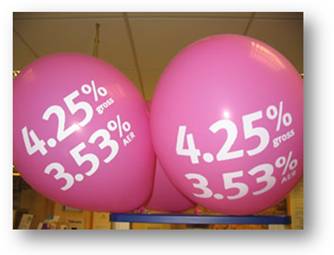Interest rates

Interest Rates
Interest rates are a measure of the price of money. Interest is what is paid when money is borrowed and the return for individuals or organisations lending their funds or parting with their liquidity.
Interest rates can go up or down in response to economic conditions. These changes significantly impact on the operation of a business.
A fall in interest rates
 A fall in interest rates has a range of effects. These include:
A fall in interest rates has a range of effects. These include:
- Making saving less attractive - possibly increasing spending
- The cost of credit falling - making borrowing more attractive to consumers.
- Mortgages becoming cheaper - leaving more disposable income for spending.
- Business short-term debt charges falling - lower interest payments on existing borrowing. Will affect highly geared firms particularly.
- Investment becoming more attractive - projects that were not viable at higher interest rates may become viable now.
- The value of the national currency falling - cheaper exports, more expensive imports.
How might some of these affect a business?
As interest rates fall, so consumers have more money to spend and this causes a rise in sales, especially those made on credit. As business costs fall, so firms have more money to invest or pay in dividends. 'Highly-geared' companies (those with large external loans compared to shareholder equity) will gain as interest charges fall and they too may invest more. As a result, the demand for investment or capital goods will increase.
As interest rates fall, however, there is less incentive for overseas investors to deposit money and those with existing investments may transfer these to other countries with higher rates. The consequence of this is that the demand for a currency will fall and the supply of that currency will increase, leading to a fall in the value of that currency in relation to other currencies. As we discussed earlier the fall in the value of a currency will reduce the price of exports and increase the price of imports. As a consequence, the demand for domestically produced goods should rise abroad and at home, although the extent of this change will depend on how price elastic demand is.
If all, or many, of these changes happen then the economy should expand. As sales increase more people are needed to make the new goods and services and unemployment will fall. However, some skills might be in short supply and wage levels and inflation could increase as a result.

The European Central Bank (ECB) based in Frankfurt sets European interest rates for all Euro countries. How would you expect these interest rate changes to affect businesses in Europe?
